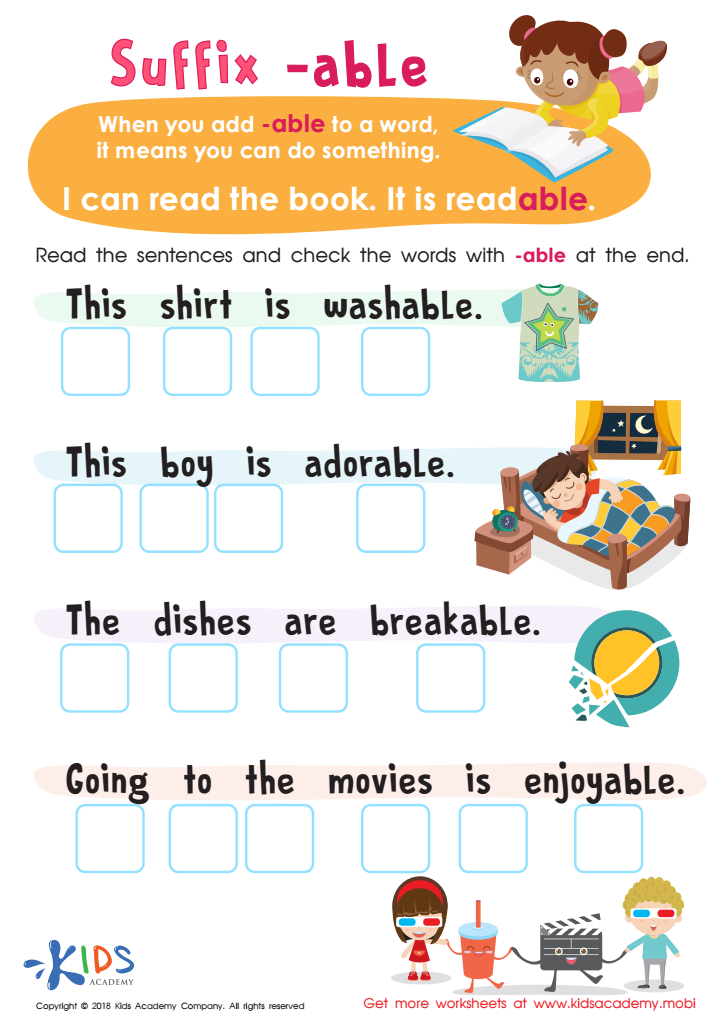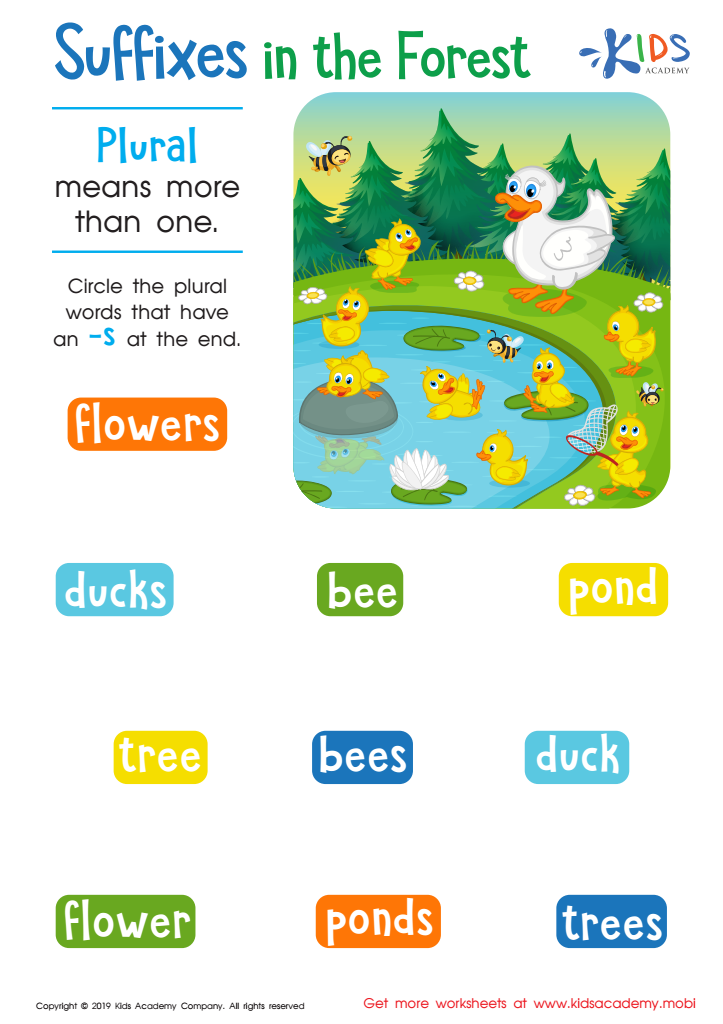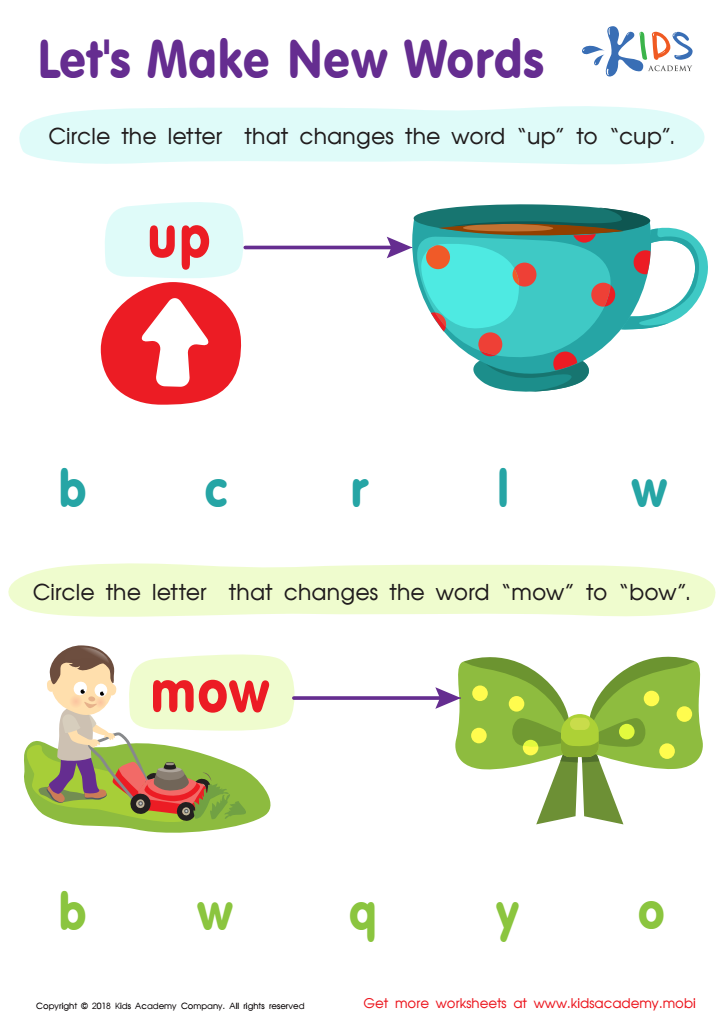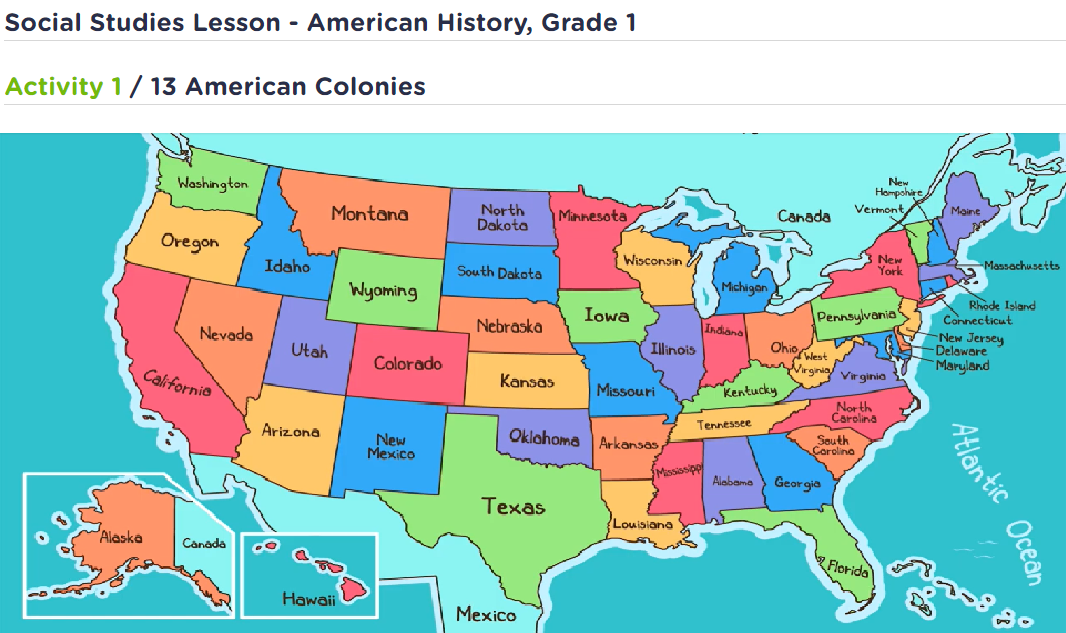Word formation skills Worksheets for Ages 5-7
3 filtered results
-
From - To
Introduce your young learners to the wonders of language with our "Word Formation Skills Worksheets" designed for ages 5-7. These engaging, fun-filled printable worksheets help children master essential word formation skills. With colorful activities and age-appropriate exercises, kids will develop a strong foundation in phonics, spelling, and vocabulary. Each worksheet is crafted to enhance understanding and encourage confidence in reading and writing. Perfect for both classroom and at-home learning, our resources support the journey of early literacy through interactive practice. Download now and watch your child's language abilities flourish!


Suffix -Able Worksheet


Suffixes in the Forest Worksheet


Let's Make New Words Worksheet
Word formation skills are crucial for children ages 5-7 as they lay the groundwork for effective communication and advanced literacy. During these formative years, children are transitioning from recognizing basic sounds and letters to constructing words, an essential leap for further language development. When children grasp how words are formed by connecting sounds (phonemic awareness) and understanding letters and their patterns (phonics), they build a toolkit for reading and writing fluency.
Parents and teachers should prioritize word formation because it boosts vocabulary, enhances spelling, and strengthens reading comprehension. For instance, a child who understands that adding “-ed” turns “jump” into “jumped” not only grasps the meaning of the past tense but also becomes more adept at decoding similar patterns in new words. This understanding promotes confidence and independence in reading, encouraging a love for books and learning.
Additionally, word formation activities stimulate cognitive development by improving memory, attention, and problem-solving skills. Engaging children in such exercises—like playing word games, sorting letters, or composing simple sentences—makes learning interactive and enjoyable. Therefore, honing these skills provides a strong foundation for academic success, making it essential for parents and teachers to integrate effective word formation practices in early education.

 Assign to the classroom
Assign to the classroom












